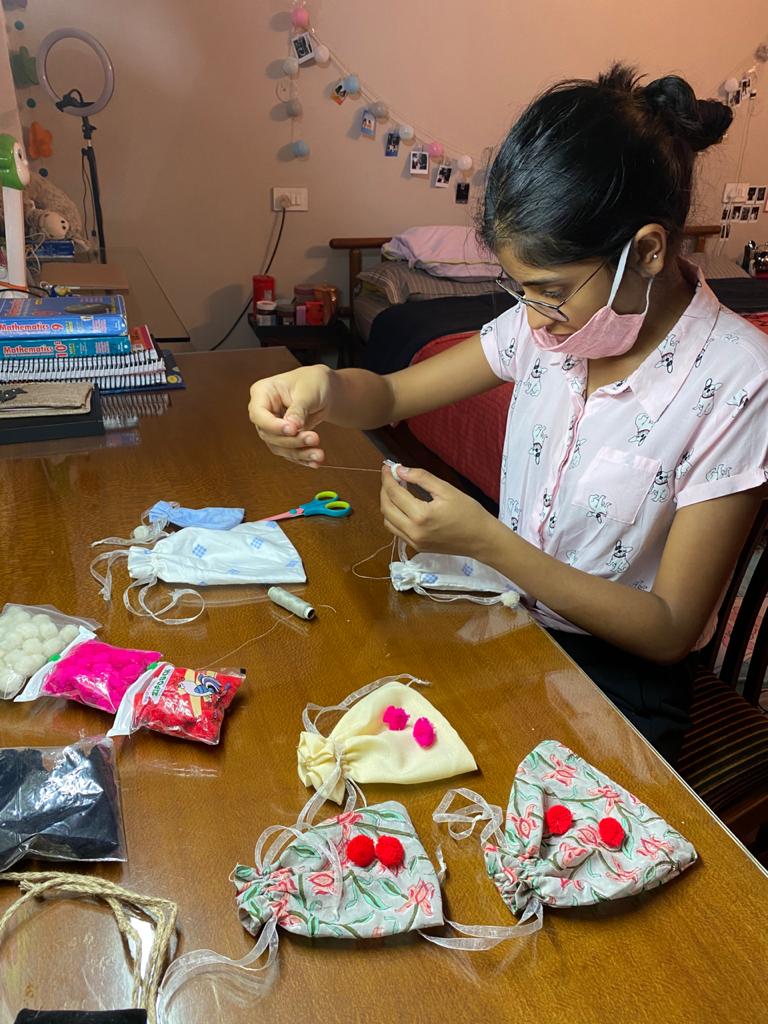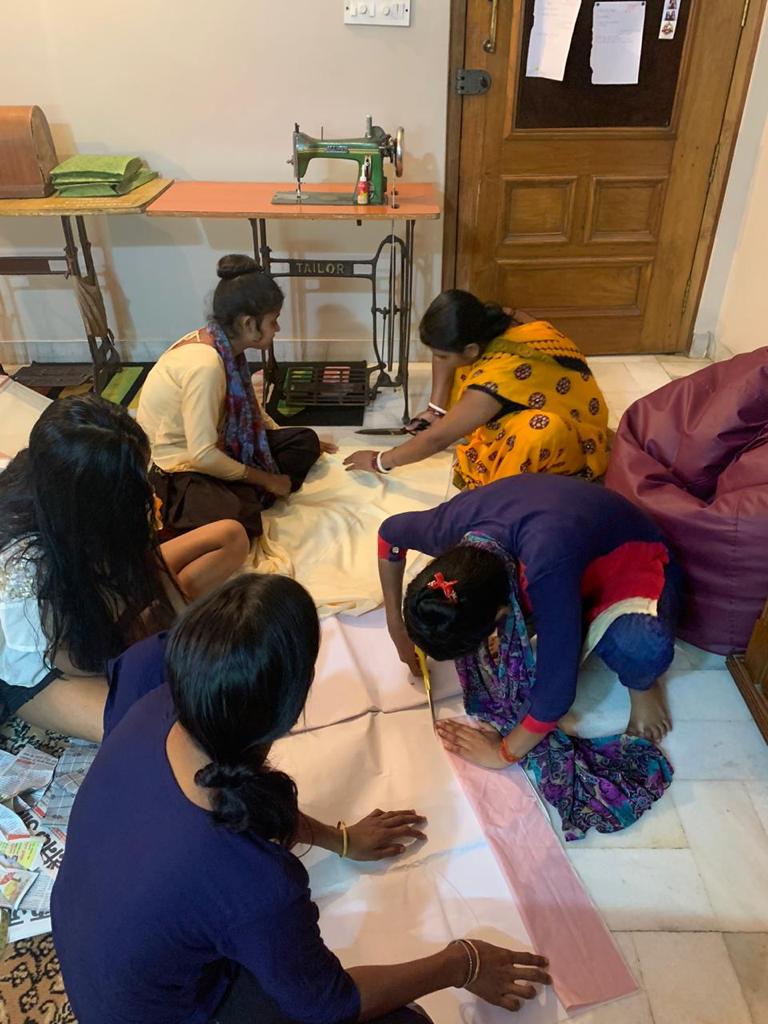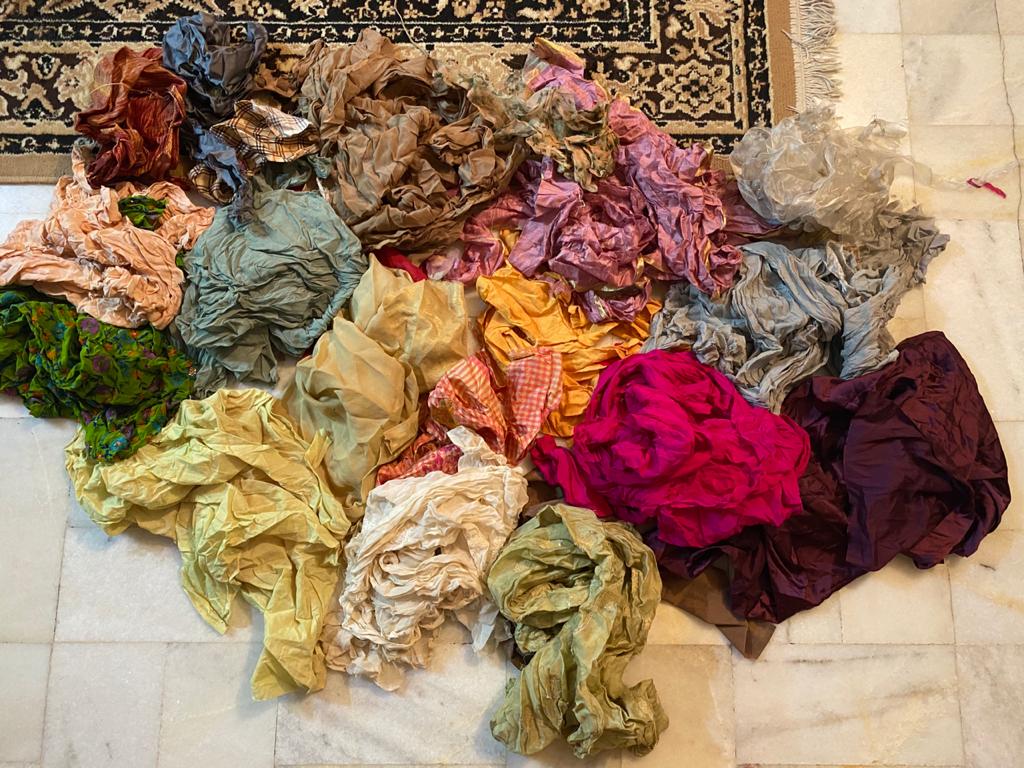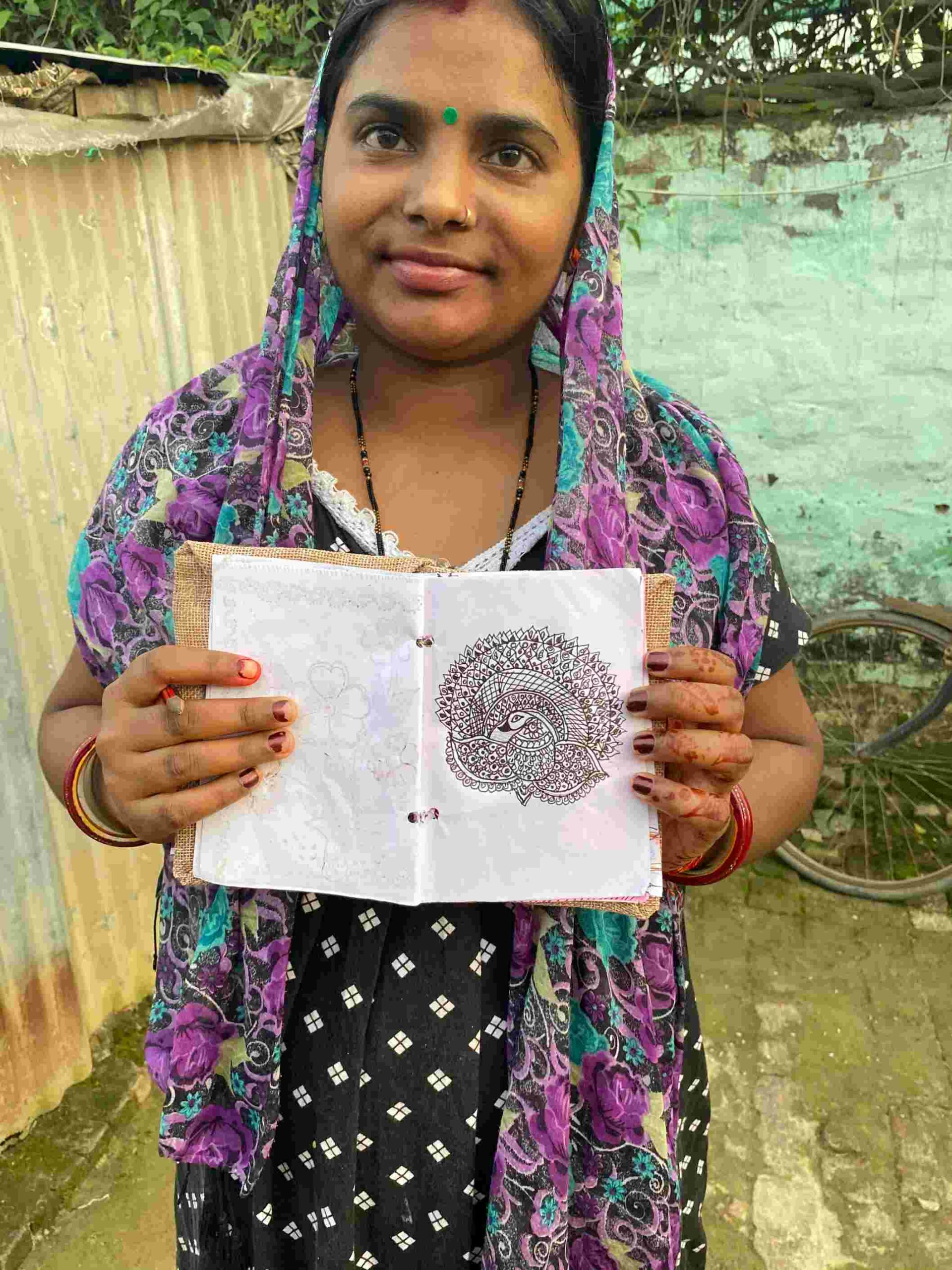Every year, more than 110 million tonnes of apparel and textile fibres are produced, leading to high amounts of waste that end up either being incinerated or disposed of in landfills. These textiles can take up to 200 years to decompose in landfills. Having researched on waste fabric, one teenager has stepped up to upcycle textile waste to reduce its environmental impact.
During the pandemic-induced lockdown, Sameera Jalan, a 16-year-old from Gorakhpur in Uttar Pradesh, chose to empower rural women utilising their sewing skills. “When I was walking around in my neighbourhood one day, I saw a woman being mistreated by her husband. She was begging him to take her back,” she says, adding this incident left an indelible mark on her.
After having pondered over it for a while, Sameera realised if the girls in the villages were independent and had a source of income. She then spoke to the children of domestic help whose education was affected by the pandemic and found out they had a few skills in common, ones they had learnt in their childhood like cooking, stitching and cleaning.
Sameera saw a glimmer of hope in the girls. She says, “I wanted to make it their strength and this is how the idea of PinThread, a not-for-profit platform, was born.”

PinThread upcycles waste cloth to make finished products. Girls and young women familiar with sewing and stitching, are trained to stitch finished products like masks, laundry bags, organisers, pouches, etc.
‘I feel empowered enough to follow my dreams’
Though, PinThread may have got off to a rocky start. Sameera explains, “I didn’t see the will to learn in them. But I saw the long-term benefits of honing their skills, and kept going. When I look back today, I am thankful I didn’t give up on them.” As a class 10 student of an international school in Kodaikanal, Tamil Nadu, Sameera was always exploring ideas for her project. Being an ardent believer of sustainability and its importance, Sameera started PinThread.
“My motto was to collaborate my ideas with these girls, introduce them to sustainability and bring out their hidden talents. In July 2020, I gave six girls journals made out of recycled paper and asked them to imagine themselves as fashion designers who could design anything in the world. I guided them to experiment with fabrics and colours for a myriad of products,” she says, adding, “They had to make entries in these journals. This was a fun task where I got to know their thoughts so that I could collaborate their ideas and cultures with mine.”
In the meantime, Sameera came up with a list of products they could possibly stitch with waste fabrics collected from boutiques around Gorakhpur. She roped in a tailor to train the girls.
“It’s important to note that working with waste fabric was a new concept for all of us. We had to come up with ways to stitch together different pieces of fabrics to make finished products that would also bring in income. While I learnt how to stitch, the girls improved their stitching skills,” Sameera points out.

When Sameera collected the journals from the girls after a month she was left pleasantly surprised with their entries. She adds, “These girls had come up with such unique and traditional motifs like flowers, peacock, etc. that no fashion schools could teach. It made me think how experiences, love for stitching can shape one’s thinking process.”
This allowed the teenager to work in tandem and incorporate their colour and pattern making skills to create products collectively as a team.
Kiran Mandal, an 18-year-old girl, couldn’t attend college during the 2020 lockdown. Even though she spent some of her time doing household chores, she felt a lot of her time was wasted doing nothing. But dedicating 2 hours of her day to PinThread daily, in the last few months, has been her light at the end of the tunnel.
“Earlier, I only knew how to stitch a blouse. But the experience of using waste fabric to create products like laundry bags and organisers fascinated me. It leaves me feeling empowered to know that I am earning. I have picked up new skills of how waste clothes can be reused. To learn something Sameera didi as our mentor is the best thing that I could have asked for,” Kiran says. These skills have made her so confident that the 18-year-old tells me she is not afraid to branch out on her own.

Mittali Kumar stresses on how the initiative is helping her earn and be independent. “Since my parents are old, I feel bad to depend on them for my needs. I don’t want to beg for anything. I want to be independent and support my family,” she says. The 23-year-old doesn’t allow her financial constraints to deter her. She adds, “Working at PinThread is helping me follow my dreams of becoming a teacher.”
Rupali Kumar, 21, wants to become a nurse. But she knows she has to work hard to support her dreams and break the norms of how women are portrayed in her society. “It is important that I work so I don’t have to rely on anyone. Having my own money will allow me to spend it the way I want. Even though people still think that girls can’t work, and only boys should, I believe that a girl can do better than a boy,” Rupali says.
Kickstarting the venture
When PinThread introduced its products to their friends and family in September 2020, the support and response was overwhelming. The girls had mastered their training to stitch limited products—like roll-up pencil cases, shoe covers, hot water bag covers, potli bags, laptop and tissue covers—within a short time period.
But when PinThread took to social media platforms, the demands for their products grew immensely. “People who didn’t know reached out. This worked great for us as feedback from the unknown crowd helped us improvise and expand our range of products,” said Sameera.
“My aim was to create a platform that required a minimum expense. Our daily expenses include our tailor charges and the occasional expenses to resolve technical problems in the sewing machines.”
“Women should be able to source waste fabric at no expense. They have to invest to buy stitching equipment. By honing their stitching skills, I’d be equipping them with the knowledge of reducing and recycling waste, something they can harness forever,” Sameera continues.

Since their inception, PinThread has sold products worth Rs 1.2 lakh with every member in the team earning upto Rs 700 per week, working just two hours on weekdays.
For Sameera, this is not the end, but just the start to her entrepreneurship. “It’s like a chain. A small town woman with a small thought, and passion to work can make a change and inspire many others,” she says, adding, “Gender will always be a part of your identity, not your full identity; society will talk but that shouldn’t stop you from doing what’s best for you.”
Edited by Yoshita Rao
No comments:
Post a Comment